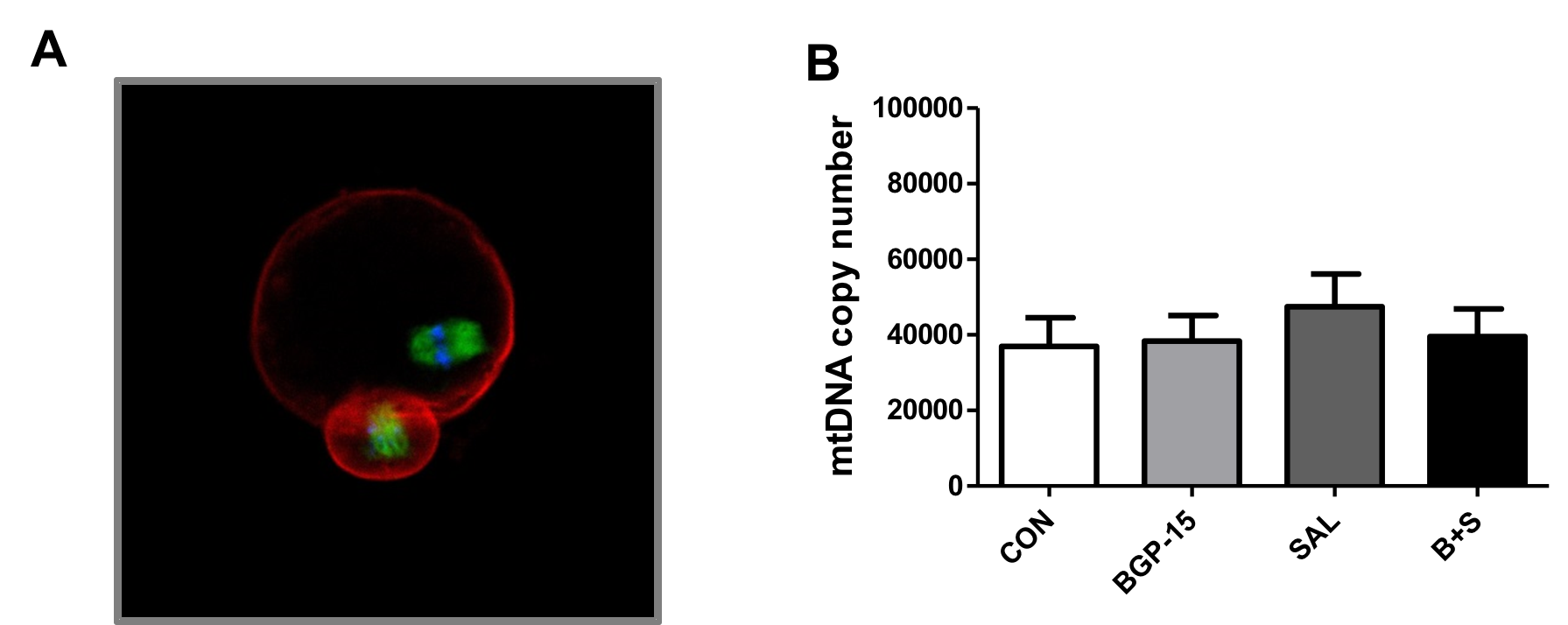Presenting Author:
Jaewang Lee, Ph.D
Principal Investigator:
Teresa Woodruff, Ph.D
Department:
Obstetrics and Gynecology
Keywords:
encapsulated in vitro follicle growth (eIVFG), endoplasmic reticulum stress (ER stress), oocyte, Salubrinal, BGP-15
Location:
Third Floor, Feinberg Pavilion, Northwestern Memorial Hospital
B119 - Basic Science Women's Health Research
Encapsulated in vitro follicle growth and endoplasmic reticulum stress
Objective: To investigate whether encapsulated in vitro follicle growth (eIVFG) has detrimental effects on endoplasmic reticulum (ER) stress during folliculogenesis and oogenesis Methods: Mouse multilayered pre-antral follicles (150-180 µm) were mechanically isolated from juvenile CD-1 mice (PND 16-18) and randomly allocated into four treatment groups of different ER-stressing inhibitors (control, 10 µM BGP-15, 400 nM Salubrinal and a combination of BGP-15 and Salubrinal). All follicles were encapsulated within 0.5% alginate solution to maintain their three-dimensional structure and cultured for 8 days. Follicles were then treated with human chorionic gonadotropin and epidermal growth factor to induce oocyte maturation. Oocytes were induced maturation for 14-16 hours before collection for analysis. Follicle survival, growth, oocyte maturation, hormone production (AMH, 17β-estradiol, and progesterone), measurement of mitochondrial membrane potential (JC-1 staining), calcium content in mature oocytes, and meiotic spindle normality were assessed to evaluate oocyte quality. Results: Among the four different treatment groups, there was no significant difference in follicle survival, growth, or development..Additionally, there was no statistically significant difference in hormone production (AMH, 17β-estradiol and progesterone) during the culture period in all groups. In addition, oocyte quality as determined by mitochondrial membrane potential, total calcium amount, and meiotic spindle normality, was not improved by the treatment of ER-stressing inhibitors during eIVFG. Conclusion: Our results suggest that eIVFG does not have any harmful effects resulting in ER-stress, as determined by follicle survival, growth, development and oocyte growth and maturation. However, further research is needed into the developmental competence of oocytes in eIVFG.

